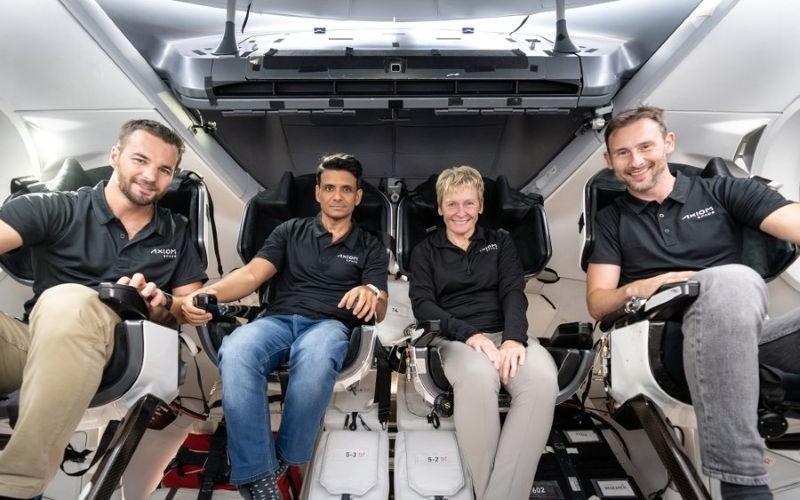ISRO forced SpaceX to fix Falcon-9 flaw that could have risked lives of four astronauts: Report

A potentially catastrophic fuel leak in the Falcon-9 rocket—tasked with flying four astronauts including Indian Air Force pilot Group Captain Shubhanshu Shukla—was detected and rectified only after the Indian Space Research Organisation (ISRO) demanded stringent due diligence, NDTV has reported in an exclusive.
The flaw, a crack in the oxidiser line of the Falcon-9’s first stage, had gone unnoticed by SpaceX until ISRO Chairman Dr V Narayanan pushed for deeper inspection and full validation through tests.
ISRO rejected ‘band-aid fix’, demanded proper repair
Despite detecting a liquid oxygen (LOX) leak, the SpaceX team was reportedly ready to proceed with the launch scheduled for June 11. But ISRO firmly objected.
A senior NDTV reporter reveals that Dr Narayanan—a leading expert on liquid engines who contributed to India's cryogenic engine development—insisted on in-situ repairs and a low-temperature leak test before clearing the launch.
A 13-member ISRO team stationed at Kennedy Space Center in Florida was “not convinced by the band-aid-like solution” proposed by SpaceX, which involved installing a purge line rather than replacing the faulty section.
Under pressure from ISRO, SpaceX reinspected the vehicle and discovered a weld crack in a liquid oxygen line—something missed despite the booster being refurbished and reused.
Experts say disaster was narrowly averted
Technical experts who spoke to NDTV warned that had the crack remained undetected, vibrations during liftoff could have fractured the line and triggered a catastrophic failure, especially given LOX’s highly inflammable nature.
SpaceX’s William Gerstenmaier, Vice President for Build and Flight Reliability, admitted during a press interaction, “We found a LOX leak... we didn’t find the leak and didn’t correct it... we are installing a purge that will mitigate the leak.” However, NDTV confirms that this approach was overruled by ISRO, which insisted on full correction.
ISRO’s insistence led to postponement and repair
After the June 11 launch was called off, SpaceX carried out repairs on the oxidiser line, and the crack was fully replaced. On Thursday, ISRO confirmed: “During a follow-on coordination meeting between ISRO, Axiom Space, and SpaceX, it was confirmed that the liquid oxygen leak observed in the Falcon 9 launch vehicle has been successfully resolved.”
Kam Ghaffarian, Executive Chairman of Axiom Space, appeared to acknowledge ISRO’s role in his statement: “This is the right thing to do for Axiom Space, for NASA, and our customers.”
Sources told NDTV that delegations from Hungary and Poland supported ISRO’s firm position on safety.
India’s high-stakes mission: Rs 550 crore and a human life
India purchased a seat on the private Axiom-4 mission for ₹550 crore, which raised the stakes significantly. The crew includes Commander Peggy Whitson (US), Pilot Shubhanshu Shukla (India), and mission specialists from Poland and Hungary.
“At one stage,” NDTV reports, “the Indian delegation was ready to pull out Group Captain Shubhanshu Shukla from the mission if SpaceX had not carried out the corrections.”
Supporting the space agency, Science Minister Dr Jitendra Singh said, “Safety, precision, commitment to excellence were paramount… it was decided to rectify the issue and revalidate before lift-off.”
Launch reset for June 19, but window open till June 30
The launch has been rescheduled to June 19, though the window remains open till the end of the month. In the meantime, a pressure anomaly in the Zvezda module of the ISS has emerged as a new challenge. ISRO has confirmed that Axiom is working closely with NASA to assess the issue.
The Falcon-9 rocket, now standing tall on Pad 39A—the same used by Neil Armstrong for the Apollo 11 mission—has passed its wet dress rehearsal. However, the final green light is still pending.
Group Captain Shukla and his crewmates remain in quarantine, awaiting their moment in history.





